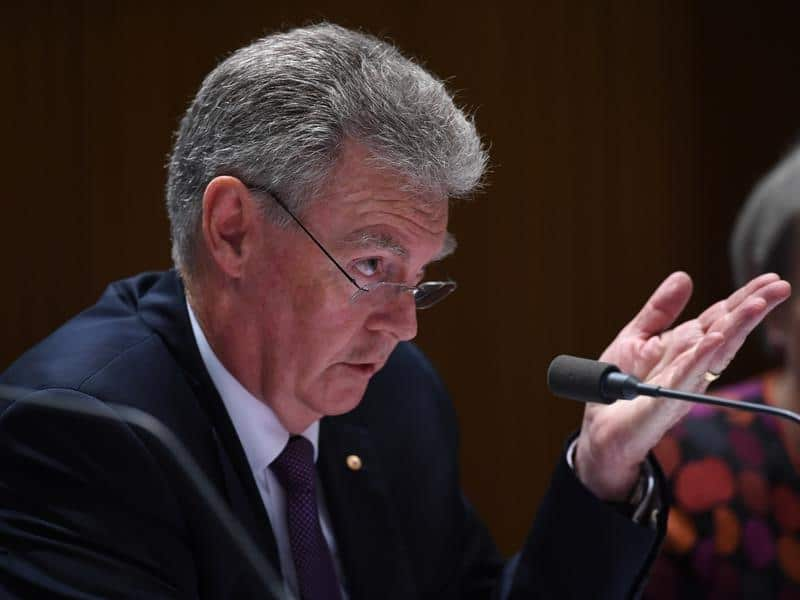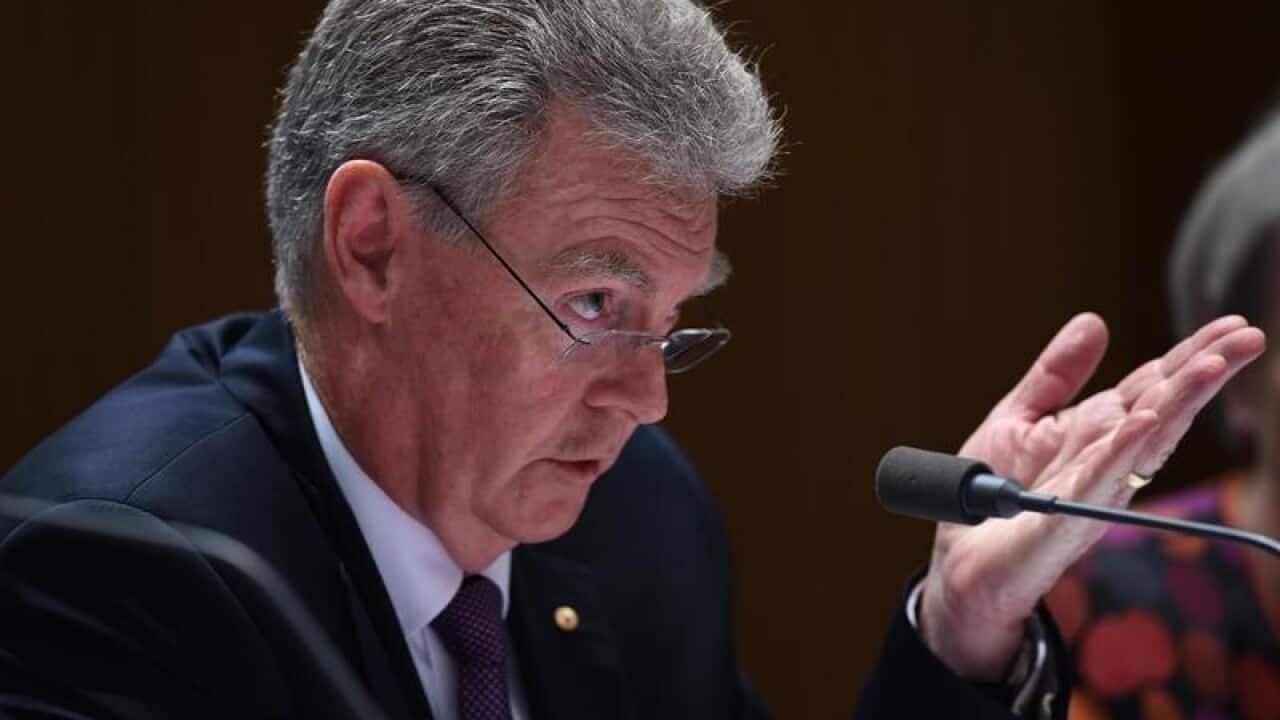The federal government’s proposed laws to crack down on foreign interference should shield journalists as well as halving prison sentences for breaching the proposed secrecy offences, a key report has recommended.
A parliamentary committee looking into the bill on Thursday made a number of recommendations to the government to improve the laws.
Its green-lighting of the legislation sets it up for a quick passage through Parliament when it returns in mid-June.
“Australia has an unprecedented level of spying and foreign interference being conducted in our country,” the committee’s chair, Liberal MP Andrew Hastie, said.
“We need this legislation enacted before the next five by-elections and certainly before the next general election to protect Australia's political processes.”
The legislation would set up a register of foreign agents where anyone “engaging with the Australian political landscape on behalf of a foreign state” must sign up.
It also sets up new espionage offences for possessing, receiving or communicating sensitive information as well as offences of preparing for espionage or stealing trade secrets, and are punishable by up to 15 years in jail.
But the committee recommended halving those prison sentences on the back of concern from the Australian Law Reform Commission.

MP Andrew Hastie. Source: AAP
The recommendations
Among its 60 recommendations, the committee also recommended the legislation should clarify which foreign political organisations will be covered and that journalists should be protected from the laws.
“This includes expanding the defence to all persons engaged in reporting news, presenting current affairs or expressing editorial content in news media where the person reasonably believed that dealing with or holding the information was in the public interest,” it said.
The Opposition welcomed the expanded protections.
“The Attorney-General will have to consent to prosecutions [of journalists]. We believe that will be an important safeguard,” the shadow Attorney-General Mark Dreyfus said.
“[It] will ensure that journalists will not be prosecuted under these new offences … for simply doing their job.”
But some weren’t so emphatic.
“If that's what's necessary to get the bill successfully passed through parliament, then I’m in favour of that but, broadly speaking, I think if you have anti-espionage legislation it needs to cover potentially all the citizens of the country,” the Australian Strategic Policy Institute’s Peter Jennings told SBS News.
“I’ve had a career involved in having highly classified information and I think that information is best kept in government circles and handled by the people who have the appropriate security clearances.”
The committee also recommended changes protecting staff of the Inspector-General of Intelligence and Security, noting there were “limitations on the Inspector-General and members of staff of the Inspector-General giving evidence”.
Top intelligence chief warns Australia
It comes after Australia's top intelligence chief warned there are more foreign spies operating in Australia with the ability to inflict "catastrophic harm" than during the Cold War.
Duncan Lewis, director-general of the Australian Security Intelligence Organisation, painted a bleak picture of foreign interference against Australia occurring on an "unprecedented scale".
Mr Lewis warned countries are trying to access classified information about the nation's global alliances and military, economic and energy systems. "Espionage, interference, sabotage and malicious insider activities can inflict catastrophic harm on our country's interests," Mr Lewis told a Senate estimates hearing late last month.
"Espionage, interference, sabotage and malicious insider activities can inflict catastrophic harm on our country's interests," Mr Lewis told a Senate estimates hearing late last month.

ASIO director-general Duncan Lewis says foreign interference in Australia is 'unprecedented'. Source: AAP
"It undermines potentially our sovereignty, our security and our prosperity."
Mr Lewis said foreign actors were attempting to covertly influence and shape the views of the Australian public, its media and officials in the Australian government, as well as members of diaspora communities.


